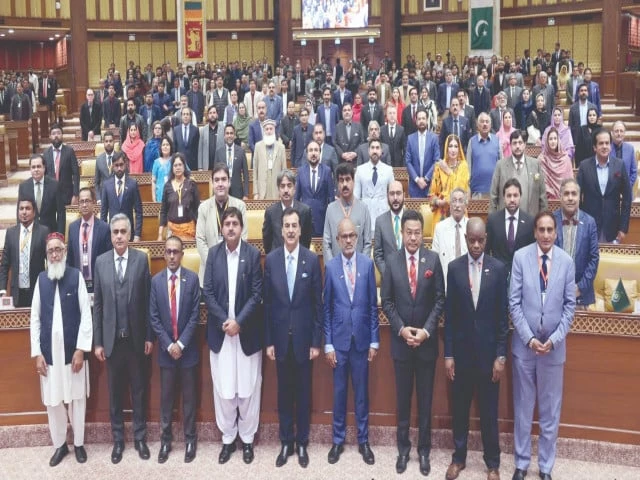Regional legislative cooperation pledged
Delegates from 22 legislatures attend CPA moot

The Commonwealth Parliamentary Association (CPA) South-East Asia Regions Joint Conference concluded at the Punjab Assembly with the adoption of the "Lahore Charter", a framework aimed at strengthening regional cooperation, democratic governance, and legislative collaboration.
Acting President of Pakistan, Syed Yousaf Raza Gillani, addressing the closing ceremony, emphasised that it is the responsibility of parliaments to bridge differences, enact laws catering to public needs, and promote cooperation, flexibility, and equality.
He stressed that no single institution can tackle the challenges of the future alone.
The conference, attended by over 100 representatives from 22 legislatures, including 12 speakers, 4 deputy speakers and delegations from Sri Lanka, the Maldives, the United Kingdom, Zambia, Malaysia and Pakistan, provided a platform to shape governance models in response to 21st-century challenges.
Gillani stated that the discussions held during the conference must now translate into legislation, cooperation frameworks, and long-term regional strategies. He asserted that modern governance demands innovation and partnership, and the Lahore Charter would serve as a cornerstone for regional cooperation.
Additionally, he highlighted the need for empowering local governments to ensure sustainable and effective public services.
Speakers, presiding officers, and delegates from the CPA branches of Asia and South-East Asia unanimously adopted the Lahore Charter, reaffirming their commitment to parliamentary democracy, constitutional supremacy, and inclusive growth.
The charter recognises the crucial role of parliaments in ensuring accountability, advancing rights, and addressing regional challenges such as climate change, socio-economic inequalities, and technological advancements.
The document outlined commitments to strengthening parliamentary oversight, enhancing local governance, developing legislative measures to combat climate change, promoting responsible use of artificial intelligence, tackling misinformation, addressing healthcare and education disparities, ensuring greater representation of marginalized groups, and fostering inter-parliamentary collaboration.
A significant outcome of the conference was the National Assembly of Pakistan being declared the Permanent Regional Secretariat for CPA Asia.
Delegates congratulated Pakistan on this achievement, emphasizing the country's role in strengthening regional parliamentary cooperation.
Earlier in the day, a session on "Strengthening Local Governance: Legislative Pathways for Effective Decentralization" was held. Participants highlighted the importance of an empowered local government system as the primary connection between citizens and governance.



















COMMENTS
Comments are moderated and generally will be posted if they are on-topic and not abusive.
For more information, please see our Comments FAQ